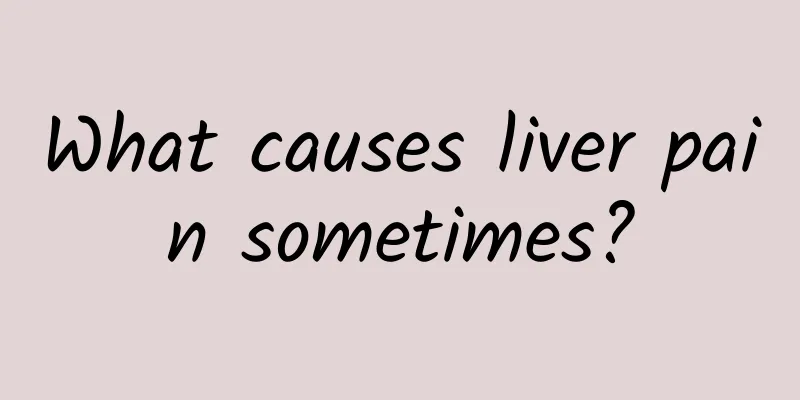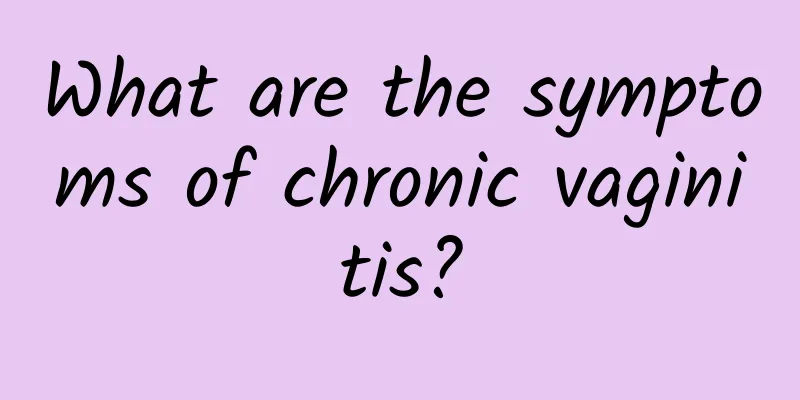What causes liver pain sometimes?

|
Some people often feel pain in the liver area when they are tired, while others only experience liver pain occasionally. People often feel liver pain when they are very angry. Anger hurts the liver refers to this situation. There are many types of liver pain, such as dull pain, sharp pain, spasming pain, continuous pain, tenderness, etc. Liver pain is not necessarily caused by liver inflammation. Diseases of the chest wall, gallbladder, and kidneys can sometimes cause discomfort near the liver area. 1. What is liver pain? The liver itself does not have pain nerves, but there is a layer of liver capsule on the outside of the liver. When liver cells become inflamed and swollen, it will cause liver enlargement; or when the liver is subjected to pressure, temperature or chemical stimulation, impulses can be formed and transmitted to the brain, causing pain, tenderness, or even colic or a tingling or burning sensation. Liver pain is pain that occurs in the right hypochondrium. It is just a symptom/sign, not a disease. It is more common in acute hepatitis. Due to liver congestion, swelling, exudation and liver cell necrosis, the outer capsule of the liver is extremely stretched. The stretched liver capsule stimulates the nerves and produces swelling, dull pain or needle-like pain. During physical examination, patients often complain of touch or percussion pain. Treatment is directed at the cause of the pain in the liver area. 2. Common Causes It is caused by chest wall lesions, pleural and lung tissue lesions, hepatobiliary system lesions, subphrenic abscess, right kidney tumor, etc. 3. Common symptoms Tenderness or percussion pain. 4. Diseases that cause pain in the liver area The nerves on the liver capsule are connected to the phrenic nerves and are innervated by the spinal sensory nerves. The cause of liver pain is determined based on the patient's age, symptoms, medical history, epidemiological data, physical signs, and necessary auxiliary examinations. It is most common in the following lesions: 1. Chest wall lesions Such as local muscle injury of the right hypochondrium, rib fracture, chest wall contusion, osteomyelitis, herpes zoster, intercostal neuritis, intercostal muscle injury, epidemic chest pain, chest wall tuberculosis, etc. 2. Pleural and lung tissue lesions Such as right-sided tuberculous pleurisy, pneumothorax, empyema, hemothorax, pneumonia, bronchial lung cancer, pulmonary embolism, etc. 3. Hepatobiliary system diseases Such as viral hepatitis, toxic hepatitis, cirrhosis caused by various reasons, liver abscess, amoebic liver disease, liver cancer, cholelithiasis, biliary infection, bile duct cancer, etc. 4. Others Such as subphrenic abscess, right kidney tumor, epidemic liver pain caused by recent enterovirus infection and pancreatic head cancer; discomfort, pain and pain in the liver caused by lesions of organs near the liver; fixed writing posture can cause compression of the intercostal muscles and produce local pain; discomfort and pain in the liver caused by emotional problems: such as anger, shortness of breath, etc. |
<<: What to do if you are depressed after drinking
>>: What are the symptoms of a weak liver?
Recommend
What causes intrauterine infection?
The harm of intrauterine infection is relatively ...
Can I eat donkey-hide gelatin if I have gallstones? Pay attention to these in your diet
Gallstones are a common clinical disease. The old...
I feel cold all over. What's going on?
Some people are born with a cold body and often f...
How long does bleeding last after medication abortion?
Medical abortion, also known as drug abortion, us...
What is whooping cough
Whooping cough may be mainly some acute respirato...
Is there anything that needs to be treated to correct my overbite?
Overbite can affect the shape of our mouth and fa...
What are the differences between Pueraria lobata and Pueraria lobata
Many people do not know about Pueraria lobata and...
I took Jieyu Pills for a year.
As the pressure of modern society continues to in...
What causes abdominal pain?
Everyone should have experienced abdominal pain. ...
Can moxibustion cause infertility?
Some friends may have heard that moxibustion can ...
Symptoms of senile vulvar atrophy
It is said that time is a ruthless butcher's ...
Dosage of Uncaria rhynchophylla
Uncaria rhynchophylla is a common Chinese medicin...
Side effects of anesthetic for wisdom tooth extraction
Sometimes wisdom teeth need to be removed. Before...
Is schistosomiasis contagious?
Maybe many of us are not familiar with schistosom...
Is Still's disease serious?
Still's disease is a type of juvenile arthrit...









